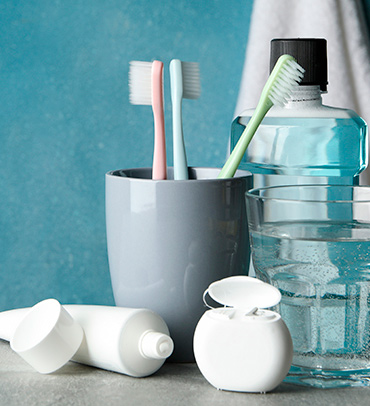Prosthetic dentistry is a branch of dentistry that aims to replace missing or damaged teeth. Common treatments in this area include dentures, dental implants, crowns and bridges. After graduating from dental school, dentists who want to become prosthodontists receive three more years of training in this field.
Prosthodontics is a specialized field of dentistry dedicated to creating dental prostheses (artificial teeth) for damaged or missing teeth. The term "prosthodontics" derives from the Greek words "prostho," meaning "replacement," and "odontist," meaning "tooth." A prosthodontist receives extended training in the fabrication of crowns, bridges, dentures, and other restorative treatments. They also routinely treat temporomandibular joint (TMJ) disorders.
Prosthodontic treatment may be recommended by your general dentist in the following cases:
Prosthetic appliances come in various forms, including fixed and removable types:
A general dentist is your primary dental care provider, offering basic reparative treatments like fillings, crowns, bridges, routine dental exams, and cleanings. A prosthodontist, however, completes three additional years of specialization after dental school, focusing on tooth replacement procedures (crowns, bridges, dentures). General dentists refer to prosthodontists for complex cases or situations outside their scope.
Orthodontics focuses on correcting tooth alignment, with orthodontists specializing in braces, retainers, and clear aligners. Prosthodontics, on the other hand, concentrates on creating dental prostheses, with prosthodontists specializing in dentures, crowns, bridges, and other custom oral appliances.
No. Prosthodontics is a specialization focusing on creating dental prostheses. However, both dentists and prosthodontists can place implants and prosthetics. Implants and dentures are two common procedures within this field.
While your general dentist can provide many prosthetic treatments, they may refer you to a prosthodontist for complex cases. These treatments include:
Prosthetic treatments can:
Recovery time depends on the type of procedure and number of teeth treated. Someone receiving a single dental crown can resume normal activities immediately, while someone needing a full denture may require several days off work. Depending on the treatment, coordinated visits and completion may take months. Your dentist or prosthodontist will provide detailed information about your recovery time.
If you have damaged or missing teeth affecting your quality of life, schedule an appointment with your dentist. They can discuss treatment options and whether you need to see a prosthodontist. Contact your dentist immediately if you notice signs of infection after treatment.
